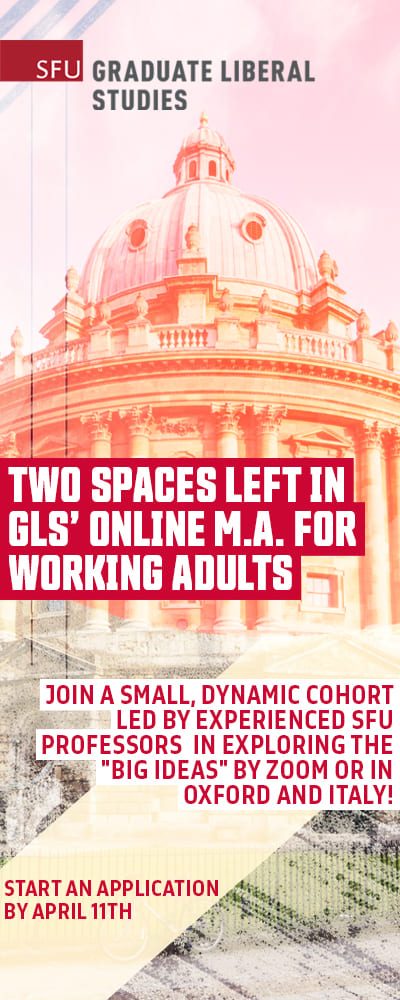Aging yet adventurous
Escape to Clayoquot Sound: Finding Home in a Wild Place
by John Dowd and Bea Dowd
Victoria: Heritage House, 2024
$34.95 / 9781772034714
Reviewed by Marianne Scott
*
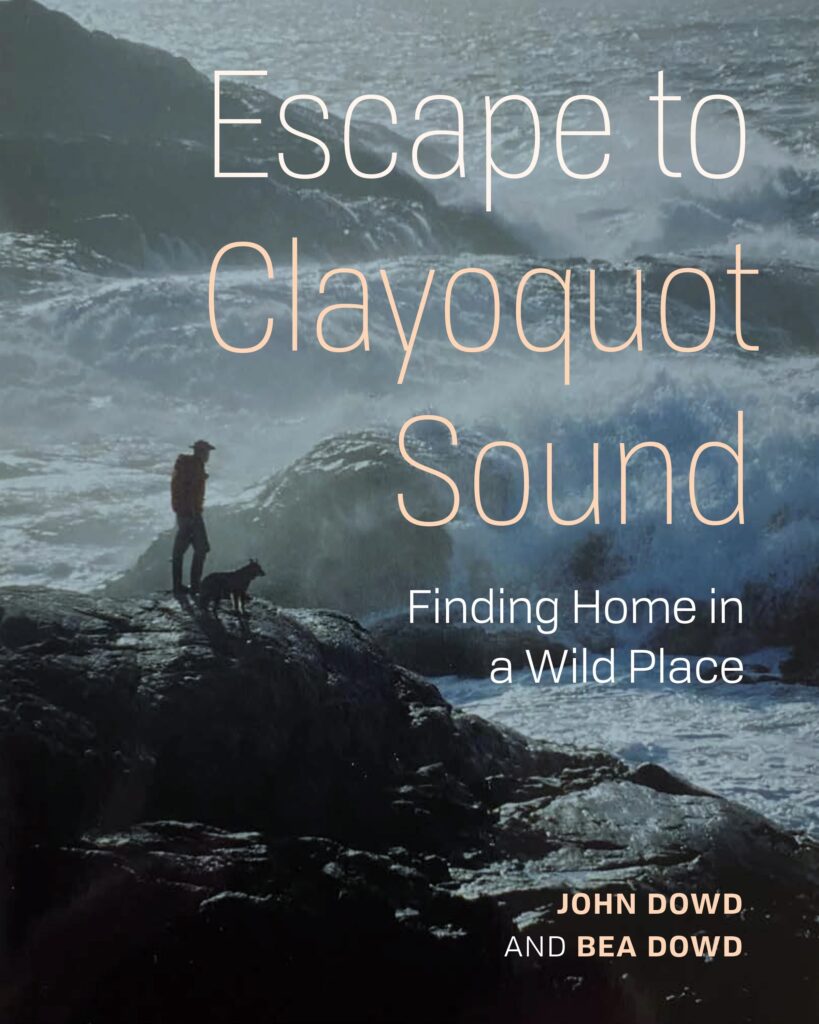
John and Bea Dowd have had a yen for wilderness living. For years, they’d occupied an off-grid cabin in the mountains near Vancouver and raised two children, Olympia and Dylan. New Zealand-born adventurer John is well-known for his kayaking expertise and as the best-selling author of Sea Kayaking: The Classic Manual for Touring, from Day Trips to Major Expeditions. Bea, a photographer and editor, edited Sea Kayaker magazine with John for decades.
With their offspring grown, they sought a new lifestyle and found it on Clayoquot’s Vargas Island during a kayaking trip (Clayoquot Sound is a UNESCO Biosphere Reserve). Vargas lies northwest of Tofino, west of Meares Island and most of its territory is a Park Reserve. The uninhabited beach-side house that enticed them is embedded in the parkland. The pair tracked down the homeowner and then moved into the “Tower” as they nicknamed the three-storey wooden house. They lived there for nearly a decade. Their book, written by John but interspersed with commentary by Bea and accompanied by her spectacular photos, is a memoir of those years and their experience creating a home surrounded by water, wind, currents, and nature in full bloom. Dogs and cats were part of the family and a pair of ravens fond of marshmallows and many mouse-trapped mice provided companionship. The wolf packs that inhabit Vargas were the only wildlife worry.
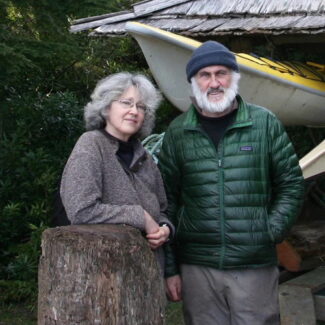
They may have lived off-grid, but they didn’t shun civilization. They brought a generator for electricity and a stove for warmth. On a nearby beach, their cell phone connected sometimes. They imported their library, kayaks, and a RHIB (Rigid-Hulled Inflatable Boat) to transport them to Tofino and neighbours. The place had an outhouse and a well. Nor were they hermits. Especially during the summer, their beach was popular with kayakers and kayaking guides they’d known for years brought groups keen to see how the Dowds fared. Their children and a lifetime of friends visited and sometimes brought a mean bottle of whisky.
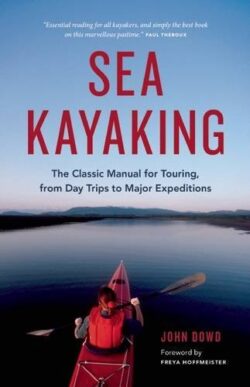
As their landlord had rarely visited the house, the practical Dowds applied their multiple skills to restore the habitat. They re-fashioned the house into a home. The jungle-like vegetation obscured parts of the house and earlier gardens and trails. They cleared the bush, collected kelp as fertilizer and planted vegetable gardens that provided sustenance in addition to the abundant fish John caught. They cleaned up the workshop. Lots of jetsam and flotsam floated to their beach, especially after the Fukushima tsunami. Japanese fishnet glass floats became part of the décor. John took up painting and built furniture. Bea created sculptures of bone, kelp, and driftwood.
After 10 years, age catching up, and having become grandparents, they left Vargas and moved into a cabin near the Nanaimo River where they’ve continued their semi-pioneering lifestyle and wrote this memoir.
I thoroughly enjoyed this engaging, well-written book, its many luminous photographs, and the bits of environmental information that popped up. While reading, I wondered how I would survive if I’d found such a house in such a wild spot with the potentially treacherous ocean on my doorstep. By the memoir’s end, however, it’d become clear that visits to the Dowds would have been delightful but that I’d need a lot more talent to survive the way they did with so much joy.
*
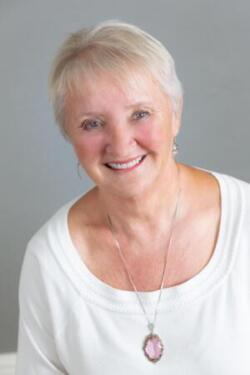
Marianne Scott is an award-winning Victoria-based writer who has specialized in marine topics since she and her husband, David, sailed from Victoria to French Polynesia in a 35-foot sailboat. Marianne has written for many marine and other publications in Canada, the U.S., and Australia and is a long time volunteer at the Maritime Museum of British Columbia. She authored Distilleries of Vancouver Island: A Guided Tour of West Coast Craft and Artisan Spirits (Touchwood Editions, 2021), co-authored Vancouver boat-builder Ben Vermeulen’s memoir, Before I Forget (2015), authored Ocean Alexander — The First 25 Years (2006), and wrote Naturally Salty — Coastal Characters of the Pacific Northwest (Touchwood Editions, 2003). [Editor’s Note: Marianne Scott has reviewed the work of Ron Holland for The British Columbia Review.]
*
The British Columbia Review
Interim Editors, 2023-26: Trevor Marc Hughes (non-fiction), Brett Josef Grubisic (fiction)
Publisher: Richard Mackie
Formerly The Ormsby Review, The British Columbia Review is an on-line book review and journal service for BC writers and readers. The Advisory Board now consists of Jean Barman, Wade Davis, Robin Fisher, Barry Gough, Hugh Johnston, Kathy Mezei, Patricia Roy, and Graeme Wynn. Provincial Government Patron (since September 2018): Creative BC. Honorary Patron: Yosef Wosk. Scholarly Patron: SFU Graduate Liberal Studies. The British Columbia Review was founded in 2016 by Richard Mackie and Alan Twigg.
“Only connect.” – E.M. Forster
